A life-saving, robust recovery

Addiction rehabilitative therapy
The road to recovery can seem distant when you’re caught up in the cycle of addiction. However, with the right treatment, coping strategies, and support, you can make a positive difference in your life despite your feelings of powerlessness. No matter how many times you have tried and failed, always remain hopeful.
Our remarkably effective addiction treatment program, called Strong for Life Recovery, combines scientifically proven integrative therapy sessions with intensive personalized therapy sessions, and a therapeutic environment conducive to sustained recovery, empowerment, and relapse prevention. Our integrated therapy typically includes medical detoxification, individualized psychotherapy, and relapse prevention planning. As needed, we also consult with specialist clinicians (such as psychiatrists and physicians) as part of our comprehensive psychological care. Combining these approaches permits our Strong for Life Recovery program to effectively combat the physical, psychological, and emotional causes and effects of addiction.
The most critical thing to understand is that there is no single addiction treatment program that works for everyone, as everyone’s needs are individually specific. It is paramount to ensure that your addiction treatment is tailored to your particular needs. Regardless of whether you abuse illegal drugs, alcohol, prescription medications or suffer from other forms of dependency. Because of this, our Strong for Life Recovery programs are specifically tailored to meet the needs of each client we work with. An invaluable long-term benefit of our personalized treatment program involves addressing the underlying issues and triggers of each individual to increase the probability of lasting sobriety. With this approach, our clients acquire effective coping mechanisms and resilience, reducing their risk of relapsing. Additionally, our personalized treatment fosters a deeper sense of empowerment and self-awareness, both crucial for sustained recovery.
At Strong for Life Integrative Psychotherapy, our addiction rehabilitation therapy has proven to be one of the most effective therapies available. After completing our program, our clients have been able to overcome their addiction, face challenges confidently, and maintain sobriety. Throughout the therapeutic process, our empathetic and professional therapists will provide you with the support and comfort you need and deserve. It is our policy to ensure the confidentiality of all information you share with our therapists throughout treatment. Through our collaborative process, you will gain insight into your behavioral patterns, thoughts, feelings, and substance abuse tendencies. Whether you are suffering from mental illness, depression, anxiety, trauma, abuse, an addiction, relationship issues, or a combination of these problems, you will learn how to deal with and overcome adversity effectively.
It is not too late to make a positive difference in your life. Click the button below to schedule your appointment now
WHEN TO SEEK ADDICTION THERAPY
Those suffering from substance use disorders (SUD) often feel as if their days are filled with conflicts and struggles. Despite your best efforts to cope with life each day, you could be sacrificing valuable time and resources on matters that could negatively impact your life in the years to come. Addiction affects every aspect of your life, whether or not you realize it. It is the most courageous decision you can make for yourself and for your future to acknowledge that you need support.
While not everyone who misuses alcohol or drugs develops an addiction, anyone can develop one. If you experience any of the following symptoms, we strongly recommend that you seek treatment for your addiction immediately:
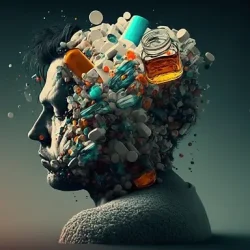
Increased use
Eventually, a person's brain and body become tolerant to the substance, so to experience the same effects, you need to take more, use it more frequently, or combine it with other substances. This increased tolerance can lead to a higher risk of overdose, as individuals may consume dangerous amounts to achieve the desired effect. Additionally, the combination of substances can result in unpredictable and potentially fatal interactions. Over time, this dependency cycle can severely impact physical and mental health. Seeking professional help is crucial to breaking this destructive cycle. Our trained specialists can provide the necessary support, medical intervention, and therapy to manage addiction safely.

Substance-driven
When everything you do revolves around substance use, you are more likely to be substance-driven to the point of addiction. For instance, you are consumed with thoughts of substance use, you crave throughout the day, and your main focus is getting and keeping enough on hand. An addiction's emotional toll can leave you feeling guilt, shame, and hopeless. As relationships suffer, people often feel loneliness and isolation. The constant battle with cravings and withdrawal can also result in severe anxiety and depression. Our Strong for Life Recovery program provides valuable counseling and individualized treatment options for those seeking recovery and sobriety.

Negative attitude
While you may feel in control, substance abuse can profoundly affect your attitude. For instance, you often miss family events; your interests wane; you fail to meet family responsibilities, causing relationship problems; or your performance leaves you unemployed. Watch your consumption patterns, especially if you exhibit changes in behavior, such as secrecy or isolation. Consider Strong for Life Recovery if you require substance abuse support. Our recovery program is tailored to the specific needs of each client. Personalized treatment plans are crucial to a successful recovery. This allows our therapists to provide interventions that resonates with clients, maximizing recovery success. Remember, early detection makes recovery easier.

Quitting is hard
While some understand addiction's damage, it is difficult for them to stop. Something always triggers substance abuse. For example, stress, social situations, and emotional distress are common substance use triggers. Environmental cues, like places where substances were previously used, can incite cravings. Additionally, certain people or memories can trigger cravings. With our Strong for Life Recovery program, we help our clients identify their triggers, learn healthy coping skills, and offer support and relapse prevention interventions. These methods often include cognitive-behavioural techniques, mindfulness practices, and psychotherapy, which assist individuals in recognizing early warning signs and managing cravings. By consistently using these resources, our clients achieved lasting sobriety and improved their quality of life.
Strong for Life Recovery Approach
Strong for Life Recovery provides individualized addiction therapy based on evidence-based best practices. All clients in our therapeutic programs receive dual diagnosis treatment. This is because addiction is not a singular problem, rather one of comorbidity, which means that one mental disorder is accompanied by another. It is also known as co-occurring disorders. For example, you may suffer from both mental health issues and substance abuse disorders (SUDs), either alcohol- or drug-related.
Among the most common mental health disorders that coexist with substance use disorders are:
- Anxiety, depression, bipolar, or other mood disorders (affect one in 10 adults each year)
- Schizophrenia
- Personality disorders
- Post-traumatic stress disorder (PTSD)
- Conduct disorders
- Eating disorders
- Attention deficit hyperactivity disorder
These conditions have a detrimental effect on our feelings, behavior, interactions with others, and perceptions of the world. Many individuals resort to drugs and alcohol as dysfunctional coping mechanisms to cope with the painful symptoms of mental illness. Unfortunately, this type of abuse increases addiction risk. However, the opposite is also apparent. Often, substance use disorders trigger mental illnesses – or worsen existing mental health issues – as a result of their repeated use. Additional behavioural disorders such as gambling addiction, sex addiction, and shopping addiction are also common among people with mental illness.
Although mental health treatment and addiction treatment are still considered separate systems of care, studies reveal that individuals with co-occurring disorders need integrated therapies or dual diagnosis therapies as a specialised therapeutic intervention. There is a strong interaction between the two disorders, which increases the likelihood of relapse unless both disorders are treated simultaneously.
By treating both mental health issues and substance abuse disorders simultaneously, the chances of long-term recovery are increased, resulting in a better quality of life and stability. In our Strong for Life Recovery treatment program, clients learn how to effectively cope with and overcome dual diagnoses. Additionally, we provide comprehensive care that addresses the whole person: physically, psychologically, emotionally, and spiritually. Our individual-centred approach respects and addresses each client’s needs, allowing them to live meaningful lives free of substance abuse.
As an addition to our comprehensive and integrative psychotherapies for dual diagnosis, we also provide short-term and medium-term residency programs at our Strong-for-Life Restorative Retreat (game farm) in Mpumalanga for those who require an intensive rehabilitation program. To learn more, please click here
Dual Diagnosis: Symptoms and Signs
When two disorders co-occur, the warning signs and symptoms of dual diagnosis can be difficult to detect. Signs vary with mental health disorders and substance(s) used – and always present themselves uniquely. Additionally, mental illness and addiction often share similar biological, psychological, and social features, making them similar in nature. As a result, individuals living with co-occurring disorders often find daily functioning extremely difficult. Although symptoms of dual diagnosis can vary according to their degree of severity and level of complexity, the following are some common indicators:
- Social Withdrawal: withdrawing oneself from friends, family, and those who are supportive
- Changed behaviour: A dramatic change in behavior (e.g., engaging in reckless or abusive behaviour) that are out of character for you, like substance abuse. You also could experience hallucinations, paranoia, or delusions, or consider suicide.
- Appetite and sleep changes: unexplained changes in eating and sleeping habits (e.g., difficulty sleeping or sleeping too much)
- Concentration problems: difficulty concentrating and difficulty thinking clearly, e.g., regularly experiencing brain fog
- Physical Changes: You may have a greater or lesser libido. Physically, you may not feel well, even if you have no reason to. Perhaps you stopped performing personal hygiene practices such as brushing your teeth or showering regularly.
- Intense dark feelings: persistent, intense feelings of despair, hopelessness and worthlessness
- Anxiety-related behaviours: relieving anxiety through specific behaviors or rituals
- Responsibility problems: difficulties remaining employed or fulfilling responsibilities
- Relationship difficulties: difficulty sustaining relationships due to unpredictable, disruptive behaviours and/or mood swings
- Emotional instability: erratic fluctuations of mood or energy levels, or a lack of emotional control. You experience extreme emotional highs and/or lows, often at short intervals. You may also feel afraid without any legitimate reason. You’re increasingly irritable and just can’t seem to break out of your “bad mood.”
- Unhealthy coping behaviours: abusing drugs or alcohol to cope, regardless of the dangers
Strong for Life Dual Therapy Program
Strong for Life Recovery combines several interventions including intensive psychotherapy, physician supervision, psychiatric assessment, individualized fitness training/kinesiology and nutritional counselling, to facilitate a full recovery from addiction. Among the integrative therapies provided by Strong for Life Recovery for dual diagnosis are:
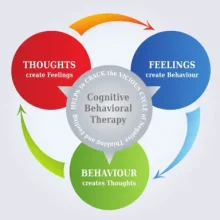
Cognitive Behaviour Therapy (CBT)
Addiction is often used to numb difficult or painful thoughts and feelings. To recover from addiction and mental illness, it is imperative to recognize the interactions within thoughts, feelings, and actions, as well as understanding their importance in the recovery process. During CBT, our clients learn to identify their negative "automatic thoughts.” Automatic thoughts are impulse-driven and result from self-doubt and fear. Recognizing the reasons for feeling or acting the way they do will enable clients to overcome their addiction and learn new, healthy behaviors instead of abusing substances or engaging in destructive behaviours.
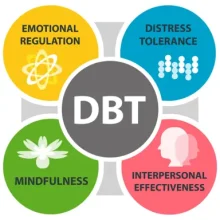
Dialectical Behavioural Therapy (DBT)
As a type of comprehensive and practical psychotherapy, DBT encourages confidence and stress management in those who are recovering from addiction. DBT has proven effective in treating complex mental health disorders and behavioral issues, including trauma, substance abuse disorders, and depression. As part of our DBT program, we teach our clients four key coping skills: mindfulness, self-regulation, distress tolerance, and interpersonal effectiveness. It is through these skills that they are able to remain calm in stressful situations, make thoughtful decisions, and control their impulses.
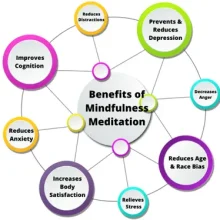
Mindfulness Therapy
The use of mindfulness in therapy can reduce anxiety and help clients stay present. The practice of deep breathing, body scans, and guided meditation helps regulate emotions. These practices can improve the client's ability to observe their thoughts and feelings without judgment, enhancing their sense of control and awareness. Combining mindfulness with other therapeutic approaches can improve treatment outcomes. Integrating mindfulness with CBT, for instance, allows clients to overcome negative thinking while staying grounded in the present moment. Additionally, when used alongside DBT, mindfulness enhances emotional regulation skills and improves resilience.
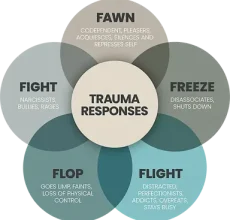
Trauma-Specific Therapy (TST)
The purpose of trauma-specific therapy (TST) is to treat the symptoms of trauma, the disorders resulting from trauma, and the specific disorders caused by trauma. TST is an innovative therapy approach that explores how trauma affects your mental, physical, emotional, and spiritual health. Besides CBT and DBT, our therapists incorporate a variety of approaches to address trauma-related symptoms and underlying issues, e.g., substance abuse. TST focuses on helping individuals develop a better understanding of their trauma and how it affects them in the present. Through TST, our therapists assist clients in recovering from trauma, resolving underlying issues, and developing healthier coping skills.
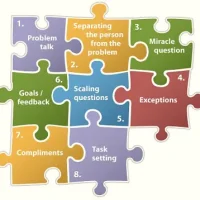
Solution-Focused Therapy (SFT)
Solution-focused therapy (SFT) is a type of psychotherapy that focuses on solutions rather than problems. SFT emphasizes identifying and building on a client’s existing strengths and resources. It involves setting clear, achievable goals and developing strategies to reach them. During therapy sessions, our therapists and clients collaborate to envision a preferred future and find practical steps to move toward it. This approach helps clients feel more empowered and optimistic about their ability to create change. By concentrating on solutions, clients can quickly see progress, which boosts their motivation and confidence. Additionally, it reduces the time spent dwelling on negative experiences, fostering a more positive and forward-thinking mindset.
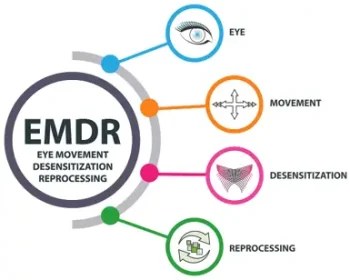
Eye Movement Desensitisation and Reprocessing Therapy (EMDR)
EMDR is a type of psychotherapy that helps people heal from trauma. It is based on the the idea that traumatic memories are stored in the brain as a set of images, and that EMDR can help to reduce the intensity of these images. During EMDR, our therapists guide their clients through a structured process that includes focusing on specific memories while simultaneously engaging in bilateral stimulation, such as eye movements or tapping. Our therapist assists their clients in processing these memories and reframe their emotional responses. Through this collaborative approach, distress associated with traumatic memories is reduced and psychological healing is promoted.
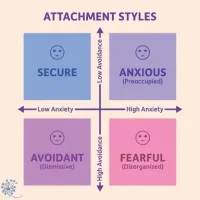
Attachment-Based Therapy (ABT)
ABT is a type of psychotherapy grounded on the idea that early attachment experiences shape relationships throughout life. Attachment issues can contribute to addiction by creating a sense of emotional void or instability that individuals may fill with substances. When early attachment experiences are disrupted, it can lead to difficulties regulating emotions and forming trust. This makes individuals more susceptible to addictive behaviours. By addressing these underlying attachment issues, our therapists work with clients to develop healthier coping mechanisms and reduce substance dependence. Our therapists provide a safe and supportive environment for clients to explore their past attachment experiences. They help clients identify and understand the patterns that stem from these early relationships. During this therapeutic process, our clients learn to build trust and develop healthy emotional connections.

Faith-Based Counselling (FBC)
Using FBC as a recovery tool enables our clients to identify their values and beliefs. Faith-based values provide purpose, hope, and inner strength vital to recovery. Addiction recovery using faith-based approaches increases resilience and self-worth. Additionally, a faith-based setting can provide emotional support and a sense of belonging, which are crucial to long-term recovery. Moreover, faith-based activities such as reflection and prayer can reduce stress and promote emotional healing. We provide FBC and support as an integral component of our recovery program. During sessions, our therapists provide encouragement, accountability, and wisdom to guide clients on their journey. Additionally, our therapists demonstrate hope and transformative potential through their own faith and recovery.
How we can help
Our Strong for Life Recovery program offers a wide range of psychological approaches personalized to each individual’s specific needs. They are all specifically designed to assist our clients with emotional, physical, and psychological challenges, including addictions, burnout, depression, and trauma.
If you experience any of the symptoms listed below, we encourage you to consult with our qualified and skilled psychotherapist, Juanitte Pieterse. Juanitte is a registered professional counselling therapist formally qualified to assess, identify, and provide treatment for dual diagnosis, including, but not limited to:
- Burnout – physical, mental and emotional exhaustion.
- Abuse (physical or emotional)
- Anxiety disorders
- Bipolar disorder
- Depression
- Eating disorders
- Obsessive-compulsive disorder
- Post-traumatic stress disorder
- Substance use disorder
- Chronic pain or serious illnesses
- Attention deficit hyperactivity
- Autism spectrum oppositional defiant and conduct disorders
- Crisis, Trauma, Grief and Loss
- Anger management
- Divorce and and family dissolution
- Academic and social developmental
- Physical and learning disabilities
- Insomnia
- Low self-esteem
- Relationship problems
- Stress
- Phobias
Why choose us?

Gain Insight
With our integrated approach, we will help you gain insight into your thoughts, feelings, and behaviors. This process will allow you to understand yourself better and make positive changes.

Effective Coping Strategies
We will teach you effective coping strategies that will help you overcome your difficulties. These strategies will provide you with the skills and tools you need to manage your emotions and improve your mental health.

Warm and Supportive Environment
We provide a warm and supportive environment to our clients. Our empathetic and professional therapists are here to guide you through the process, ensuring you feel comfortable and supported from the very beginning.

Lasting Change
Our trained and experienced therapists will guide you through the process of achieving emotional well-being, personal growth, and lasting change. We believe that everyone has the potential to live a fulfilling life, and we are here to help you achieve yours.
What our clients say:



